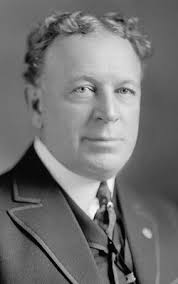As we await more details on Trump& #39;s immigration move, a bit of history on a key moment 100 years ago when Congress debated a total ban on immigrants.
Like now, it was a time of national upheaval and unrest. The idea failed, but the debate around it changed America forever. 1/
Like now, it was a time of national upheaval and unrest. The idea failed, but the debate around it changed America forever. 1/
This is Albert Johnson, arguably the most influential journalist-turned-politician in American history. He was a night editor at The Washington Post who moved out to the Pacific Northwest, where anti-Asian and anti-labor sentiments ran high. 2/
White mobs attacked South Asian migrant workers. The radical IWW union—pro-immigrant unlike other unions—was ascendant and getting crushed by local forces. Johnson was so disturbed by Asian immigrants and the power of labor, he ran for Congress in 1912 and won. 3/
In 1919 he became chair of the House Immigration Committee and soon pushed a total ban. He lost—but as a compromise he won strict ethnic quotas that gave priority to white Anglo-Saxons and sharply restricted the entry of Jews, Italians and Asians. 4/
David Reed, the co-sponsor of the bill in the Senate, called it a “landmark” and said it marked the end of America as a melting pot. He was right — the number of foreign-born in the U.S. plummeted. The idea of mass immigration as a powerful force in America essentially died. 5/
It would take 40 years for Johnson& #39;s ethnic quota system to be abandoned with the 1965 Immigration and Nationality Act, which helped give this country more non-European immigrants than ever before. The law prioritized family reunification, people with special skills. 6/

 Read on Twitter
Read on Twitter


